Pakistan PM Imran Khan regains in the GCC
On 6 January 2019, Crown Prince of Abu Dhabi Sheikh Mohammed bin Zayed Al Nahyan paid a one day visit to Pakistan. The Crown Prince was personally received by Prime Minister Imran Khan. The relationship witnessed a dip after Pakistan Parliament in April 2015 recommended to then Prime Minister Nawaz Sharif to maintain a neutral stance during the Saudi-led offensive in Yemen against the Houthis.
Prime Minister Khan, after assuming office, has been keen to revive closer bilateral relations and has visited UAE twice in September and November 2018. The UAE indicated its interest to invest in Pakistan’s oil and gas, logistics, construction and ports sectors. Both leaders held discussions on regional, global issues as well as on Afghanistan and the situation in Jammu and Kashmir.
During the course of the visit, both sides finalized the terms and conditions for a US$ 6.2 billion assistance package to bail-out Pakistan’s foreign exchange reserves and ease its balance of payments crisis. The package involves US$ 3.2 billion worth of oil supplies on deferred payments. The UAE’s financial assistance has come as Pakistan is negotiating a US$ 8 billion bail-out with the International Monetary Fund (IMF). They also discussed measures to expand trade and decided to form a task force.
In February 2019, foreign ministers of both countries will co-chair Pakistan-UAE Joint Ministerial Commission to develop a comprehensive roadmap and fast track the approval of pending agreements and MOUs. Moreover, the visit expedited the process to finalise Mutual Legal Assistance Agreement to counter money laundering. Both condemned terrorism in all its forms– a performa approach but. New avenues to expand defence and security cooperation in terms of training, joint exercises and production were also discussed.
Imran Khan’s foreign policy can been seen as a continuation of earlier government’s reliance on the Gulf States for economic and energy security. As Pakistan is facing mounting economic debts, the dependence on Gulf States in likely to increase. After his engagement with UAE, the Pakistani Minister undertook a three day visit on 21-23 January 2019 to forge ties with Qatar which is experiencing blockade since 2017 led by Saudi Arabia and backed by UAE.
On 22 January 2019, Prime Minister Khan addressed the Pakistani expatriate community living in Qatar and met with Qatari Emir Sheikh Tamim Bin Hamad Al-Thani, Prime Minister and Interior Minister Sheikh Abdullah bin Nasser bin Khalifa Al Thani . The visit focused on developing bilateral cooperation especially in the arena of economic development. Khan and his Qatari counterpart also held discussions on current developments in the region. They discussed easing of the Pakistani labour flow to Qatar. Earlier, on 28 December 2018, Qatar’s Ambassador to Pakistan, Saqar Bin Mubarak along with Special assistant to the Prime Minister on overseas Pakistanis and human resource development Syed Zulfikar Bukhari inaugurated a visa facilitation centre in Islamabad to expedite visa process for Pakistani workforce. Pakistan therefore became one of the eight states to open Qatari visa facilitation centre. Qatar has initiated the procedure to provide 100,000 jobs for its workforce. They also held discussion to adjust and divert skilled labour returning from Saudi Arabia.
In the field of energy, Prime Minister Khan asked his Qatari counterpart to provide credit facility for LNG supplies and called for revision of prices. Pakistan’s total LNG imports bill is at US$ 4 billion per year at the present. Petroleum Minister Ghulam Sarwar Khan had however announced that the Government would abide by the 15 year agreement with Qatar.
In the area of trade, both are likely to intensify economic engagement and notably, the bilateral trade witnessed an increase by 104 percent from US$ 782 million to 1.6 billion in 2017. One of the key agenda during the visit was to attract investment in the cash-strapped economy. The Pakistani Prime Minister met with Qatar Chamber of Commerce led by Sheikh Khalifa Bin Jassim Bin Mohammed Al-Thani, Chairman of the Qatar Businessmen Association (QBA) Sheikh Faisal bin Qassim bin Faisal Al-Thani and prominent businessman, Hussain Alfardan to invite investments especially in area of hospitality, manufacturing, transportation and food production. They also talked about developing a bilateral framework of trade to increase imports from Pakistan. Moreover, in order to promote ease of business, Khan’s government has reduced the number of taxes from 36 to 16. He announced his decision to develop tourism infrastructure to support the economy. Prime Minister held discussion with Hassan Al-Thawadi, Secretary General of the Supreme Committee of Delivery and Legacy and promised to prove skilled labour force as well as security forces during 2022 Football World Cup in Doha. Prime Minister Khan’s visit was aimed at securing Qatar’s assistance to develop its economy. On a bilateral level, the thrust of relations between both states are based on trade, energy and labour exports which is likely to grow in the coming months resulting in increased dependency on the Persian Gulf states for its economic and political sustenance.
From Pakistan’s point of view these visits have given its succour from economic crisis and sustenance and relevance in the greater Afghan game since both Qatar and UAE have been taking leads along with Pakistan to facilitate negotiations with Taliban. Besides, Pakistan seems to have successfully steered its relevance in the region at least in the short term once again.
Qatar to build Airport in Nepal
In January 2019, Qatari authorities held talks with Nepal Government to assist in building a US$ 1.2 billion airport project at Nijgadh. Nijgadh is located 175 km from Kathmandu in Bara District. Senior officials from Tourism Ministry and Civil Aviation Authority are holding discussion on the viability of the project as well as modality of investment and operation. While Qatar had suggested building it under engineering, procurement, construction, financing (EPCF) model, Nepal is keen to apply a build, own, operate, transfer (BOOT) model.
The airport project has been a key agenda during Nepali President Bidya Devi Bhandari’s visit to Doha on 29 October 2018. There is high possibility that agreement would be signed during Prime Minister KP Sharma Oli’s visit to Qatar in 2019 and the fine details of the construction project will be determined through government-to-government agreement. Qatar had earlier expressed interest to develop Nepal’s aviation sector and keen to establish itself as a strategic partner of Nepal Airlines Corporation (NAC).
In July 2015, a delegation from Airports Authority of India had also shown indication to invest in the airport project through private or public funding. However, due to political instability in the Himalayan state along with administrative changes, the proposal could not move forward. Under the new government of KP Sharma Oli, the airport project has re-emerged as a top priority. From Nepal’s perspective, the airport would act as major transit hub for trade and visitors and boost its economy. Qatar’s policies appear to suggest its interest to develop geo-strategic presence in South Asia and China due to ongoing economic blockade imposed by Saudi Arabia and other regional neighbours since June 2017. In this direction, Qatar Airways has also procured five percent stake in China Southern Airlines on 2 January 2019.
Macron’s Visit to Egypt
On 27 January 2019, French President Emmanuel Macron met with Egyptian President, Abdel Fattah El Sisi to boost trade and defence ties with the largest Arab state. The delegation consisted of five ministers and members from business, academic, cultural and scientific community. Presently, French investment in Egypt is estimated at €4.5 billion or US$ 5.1 billion in the area of agricultural industries, information technology, construction, renewable energy, transportation, banking, aviation, water desalination, infrastructure and tourism. In the first eight months of 2018, the total trade between both states was at US$ 1.4 billion in which share of Egypt’s exports was at US$ 460 million and imports was at US$ 999 million. The trade imbalance indicates a large deficit for Egypt. Egypt’s primary export items to France are natural gas, oil, jet fuel, cotton yarn and ready-made garments and France’s export to Egypt are wheat, machinery, electrical equipment, and medicines. According to Central Bank of Egypt, Foreign direct investment from France has plummeted from US$ 535.8 million in 2016-17 to US$ 240.3 million in 2017-18.
During the trip, Egyptian leaders expressed optimism to enhance foreign direct investment from France and boost the volume of Egyptian exports to France. Prior to Macron’s visit, on 20 January 2019, French Minister for Economy and Finance Bruno Le Maire met with the Egyptian leadership to discuss on the investment potential and expansion plans. French Embassy in March 2019 is planning to launch a campaign to attract investment in Egypt.
During the visit, 40 trade deals and agreements worth US$ 1.8 billion were signed. Besides, three inter-governmental protocols on area of transport, technical assistance and information technology, several joint declarations and agreements were also signed to cooperate in areas such as health, medicine, national level immunization programme, and vaccine manufacturing, electricity production and distribution, renewable energy, cogeneration system of gas consumption, micro insurance, development of cashless payment and digital banking etc. Moreover, an agreement was also signed to transform oil residues in Suez Canal into new recycled fuels.
Both sides shared their concern over the situation in Libya as the power vacuum has widened the room for militant groups. Macron shared his concern on the subject of human trafficking emanating from Libya. Besides, trade and developments in the region, domestic situation in Egypt remained a key area of discussion between both leaders. The French President during the press conference suggested that stability and security cannot be separated from human rights. Since Sisi’s takeover in 2013, around 60,000 political prisoners languish in jails. Sisi contradicted Macron’s concerns stating that rights should be considered in the context of regional developments and fight against terrorism. Therefore, it would be unfair to utilize the same parameter as the West. The members of human rights committee in Egyptian parliament, Alaa Abed and Mohamed Al-Ghoul backed Sisi’s statement. According to Al-Ghoul, state was facing difficulty after the ‘2013 revolution’ when Mohammed Morsi was ousted. He also stated that human rights is not only limited to politics but encompasses economic, cultural and social rights. The trip involved minor diplomatic misgivings over the question of human rights.
France has emerged as one of the largest arms supplier for Egypt. During this trip however, they did not sign any agreement on arms trade. Domestically within France, the Government has been criticized for supplying armed vehicles and surveillance equipment which has been utilized to suppress dissent in Egypt. Therefore, Macron’s concerns over human rights while consolidating its economic ties with Egypt stems from his attempt to expand and reassert France’s economic and strategic presence in the region as US appears to be winding down.
Mahmoud Abbas likely to visit Damascus
Senior Palestinian Authority (PA) official has indicated that PA President Mahmoud Abbas is likely to meet with Syrian President Bashar Al Assad in Damascus soon. Abbas’ last visit to Syria was in 2011 prior to the Arab Spring. After protests started brewing leading to violent confrontation between government forces and rebels, Syria was expelled from the Arab League. During the course of Arab Spring, the visits by PA officials thinned down; however PA refrained from completely severing ties with Assad regime and called for peaceful resolution of the conflict. According to United Nations Relief and Works Agency (UNRWA), Syria presently hosts 438,000 Palestinian refugees and PA’s neutral posture during the conflict was aimed at safeguarding the position of refugees.
After the near victory of Assad regime, as an indication of increasing bonhomie between Palestine and Syria after eight years, PA inaugurated the headquarters of official channel Palestine TV in Damascus on 14 January 2019. The opening ceremony was attended by Fatah Central Committee and Palestine Liberation Organization’s (PLO) Executive Committee member Azzam al-Ahmad, PLO Executive Committee member Wasel Abu Yousef and Governor of Jenin Akram Rajoub. The members from Palestinian factions from Fatah Party, Popular Front for the Liberation of Palestine (PFLP) and Democratic Front for the Liberation of Palestine (DLFP) were also present. PA ambassador to Syria, Mahmoud al-Khalidi remarked the launch of the new channel as "a great day in the history of the Palestinian struggle".
The incentive to launch the news channel was also pushed by the contemporary developments in the region as Arab leaders have shown indication to normalize ties with the Syrian regime. On 16 December 2018, the Sudanese President Omar Al-Bashir became the first Arab leader to visit Damascus after 2011 Arab Spring. Moreover, on 27 December and 28 December 2018, UAE and Bahrain respectively had announced their decision to re-open their embassies. Therefore, the Palestinian leader’s upcoming visit to Damascus can be seen as growing rapprochement with the Assad regime and acceptance of the present political leadership in Syria.
Palestine assumes Chair of G77 and their bid for full UN Membership
On 15 January 2019, the United Nations (UN) Secretary General Antonio Guterres welcomed the leadership of the State of Palestine as the new chair of Group of 77’s (G77), a coalition of 134 developing states and China. The G77 was originally founded in 1964 with 77 countries including India. UN Secretary General remarked that the state and its citizens have first-hand experience of some of the most challenging global issues. Palestine was appointed to the chair by voting in the UN General Assembly on 16 October 2018. The decision to appoint Palestine as the chair was earlier taken by foreign ministers of G77 member states. During the General Assembly voting, 146 states voted in favour and 15 states abstained. Only Israel, the US and Australia voted against the resolution. Israel warned that the coalition which represents the development sphere of the UN would only serve the interests of one delegation. The US Deputy Ambassador to the US, Jonathan Cohen stated that the US would not support Palestine’s efforts to enhance its status outside direct negotiations as it would enable the PA to speak and act on behalf of major group of states in the UN. Palestine after assuming the chair would allow them to procedurally operate like a member state that can make statements, submit and co-sponsor proposals and amendments, give rights of reply and raise points of order.
Palestine’s new leadership role as the chair of G77 has also reactivated its plan to apply for full membership in the UN which is likely to happen in coming months. On 23 September 2011, PA had sent an application to obtain full membership in the UN. However the bid failed as it could not gather the support of nine UN Security Council members. It however secured a non-member observer status in the UN on 29 November 2012. In the present move, PA Foreign Minister Riad al-Maliki stated that their bid is likely to be blocked by veto from the US, but it would not stop them from presenting their application. In its efforts, the Palestinian leadership would attempt to hold discussions with members of the Security Council. However, PA’s recent efforts would continue to face roadblocks from Israel and the US.
US cuts Financial Assistance to Palestine
In October 2018, US President Donald Trump signed the Anti-Terrorism Clarification Act which would allow US courts to utilize Palestinian frozen assets to pay financial reparations to families of US citizens who were killed by Palestinian terrorist attacks. The law would expose Palestinians to legal action in US courts in exchange of receiving US financial assistance. The deadline for accepting the proposal was 31 January 2019 and the law came in to force on 1 February 2019.
The US has provided financial assistance to West Bank and Gaza worth US$ 5 billion since 1993. The PA has rejected the US decision and refused to take financial assistance under such pre-conditions. The rejection of financial assistance by PA would effectively end the US assistance, coordination and training for Palestinian security forces, which were helpful to maintain security coordination with Israel in West Bank.
In the absence of aid from the US and resulting weakness in Palestinian security infrastructure, the security and economic burden is bound to lie on Israel. From Israel’s perspective, it has shown willingness to uphold security coordination with PA. In fact, traditionally, since 1993 Oslo accords, security cooperation between Israel and PA had remained constant. The issue of security cooperation has however faced criticism within the Palestinian community. At present, Israel and several pro-Israel members of the Congress are looking for ways to restore funding and maintain the security cooperation among the US, Israel and PA. Meanwhile several Gulf and Arab countries as well as India have provided financial support to the PA and Palestinian oriented projects like UNRWA to temporarily bridge the funding gap.
Israel-Iran Confrontation
On 16 January 2019, Israeli strategic think tank, Institute for National Security (INSS) submitted its report to the President of Israel, Riuven Rivlin stating that confrontation in 2019 is likely to emerge from the North. The report listed the threats in terms of its severity noting that strategic competition with Iran and Hezbollah would continue. The confrontation the Syrian battleground in the North would also have a spill over effect in the south as Hamas would seek to reassert itself. The situation is further complicated by US President Donald Trump’s decision to withdraw the 2000 odd US troops from Syria that would limit its strategic hold in the region. In such context, the report has recommended that Israel must remain prepared for an all out war against Iran, Hezbollah and Syria. In case of Hamas, the report noted Israeli forces have not succeeded to root out the group in the three rounds of confrontation. Therefore, the new strategy should design an operational plan for a severe blow against the group; however, it should not reoccupy Gaza Strip.
Moreover, the outgoing Israel Defence Force (IDF) Chief of Staff Lt. General Gadi Eisenkot, on 13 January 2019, told during an interview that IDF has been authorised to strike at Iranian targets after a cabinet decision in January 2017. While strikes at Hezbollah build-ups and convoys have been common since 2011 civil war in Syria, IDF has attacked Iranian positions since last two years. The policy change within Israel occurred due to shift in Iranian Revolutionary Guards Corps (IRGC) strategy to build up forces of upto 100,000 Shiite fighters from Pakistan, Afghanistan and Iraq. The IRGC has reportedly established intelligence and air bases within Syrian air bases. The latest conflagration occurred on 20 January 2019 after Israel’s Iron Dome anti-missile system detected an Iranian missile in occupied Golan Heights. Israel retaliated by launching attacks on Iranian positions in Syria. There are contradictory reports over the number of causalities. Russia’s Defence Control Centre reported that four Syrian soldiers were killed and six are wounded and Syrian Observatory for Human Rights counted the total number of deaths to 11 including two Syrians. The intensification of the conflict has become a new normal which is likely to flare up in the coming months.
US reaches out to its Allies in West Asia
In the aftermath of US President Donald Trump’s announcement to withdraw troops from Syria on 26 December 2018, top US officials sought to reassure its allies in the West Asian region that US would continue its engagement to confront the dangers posed by terrorism and Iran’s growing influence. Between 5 and 8 January 2019, Trump’s National Security Advisor John Bolton visited Israel and Turkey and assured that it would withdraw its forces only after the complete defeat of almost 17,000 Islamic State (IS) fighters in Syria. The US also sought assurance from Turkey that it would not attack Kurdish forces allied with the US. Turkish policy makers, prior to the visit, were trying to assess whether Bolton’s visit is suggestive of a larger policy shift or can be considered temporary. Turkish President Recep Tayyip Erdogan’s Advisor Ibrahim Kalin criticized Bolton’s appeal as it can jeopardize its military efforts against IS and hinders its campaign against YPG in Syria and PKK within Turkey. Notably President Erdogan refused to meet with Bolton citing scheduling conflict on 8 January 2019. He however offered a scathing remark over Bolton’s conditions and termed it unacceptable in the Parliament the same day. Turkey at present has agreed to establish safe zones to safeguard its territory from Kurdish groups.
Bolton’s trip coincided with US Secretary of State Mike Pompeo’s visit to Jordan, Egypt, Bahrain, United Arab Emirates (UAE), Qatar, Saudi Arabia, Oman and an unplanned trip to Iraq. The trip to Kuwait was cancelled because of family emergency. Pompeo, during the course of the trip, sought to reassure US’ allies that it would continue its presence in the region and the conditions of withdrawal is contingent on situation on the ground which would depend on complete elimination of the IS as well as evacuation of Iranian troops and its proxies from Syrian battleground. The visit was also aimed to persuade US’ regional allies to assume more responsibility to deal with the common threats in the region.
However, with the US pendulum unpredictably swinging from one extreme to another, it is difficult to conclude which way the next move will be made as President Trump intends to pull out of the costlier wars and seems to be focussing on its neighbourhood, i.e. Venezuela, which is said to have the largest known hydrocarbon reserves.

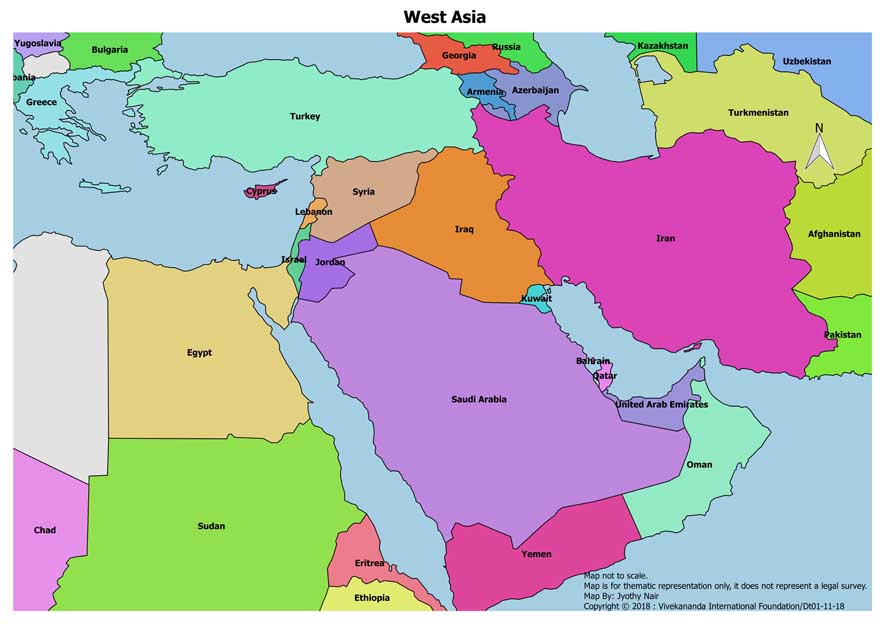

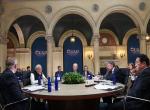
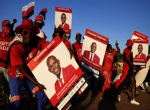
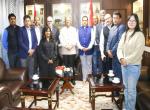


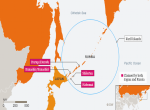
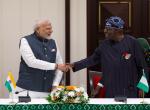
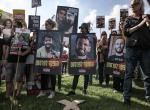
Post new comment